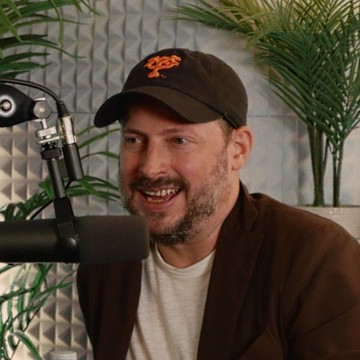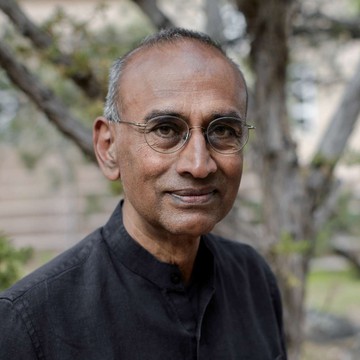

80,000 Hours Podcast
Rob, Luisa, and the 80000 Hours team
Unusually in-depth conversations about the world's most pressing problems and what you can do to solve them.
Subscribe by searching for '80000 Hours' wherever you get podcasts.
Hosted by Rob Wiblin and Luisa Rodriguez.
Subscribe by searching for '80000 Hours' wherever you get podcasts.
Hosted by Rob Wiblin and Luisa Rodriguez.
Episodes
Mentioned books

101 snips
Oct 16, 2024 • 1h 58min
#204 – Nate Silver on making sense of SBF, and his biggest critiques of effective altruism
Nate Silver, author of "On the Edge" and creator of FiveThirtyEight, dives into the complexities of risk-taking and analytical thinking. He discusses the concept of 'the River,' a group excelling but often overestimating their judgment. Nate critiques effective altruism, highlighting its strengths and weaknesses while emphasizing the importance of personal trust in altruistic actions. He also explores decision-making in tech, ethical implications of AI, and the pitfalls of instant feedback in shaping behavior, all revealing the nuanced dynamics of modern decision-making and philanthropy.

47 snips
Oct 3, 2024 • 1h 25min
#203 – Peter Godfrey-Smith on interfering with wild nature, accepting death, and the origin of complex civilisation
Peter Godfrey-Smith, a philosophy professor and bestselling author, discusses the intricate relationship between consciousness, wild nature, and the moral dilemmas of human intervention. He dives into why octopuses and dolphins haven't created complex civilizations despite their intelligence. The conversation also explores animal ethics, the struggle for existence in the wild, and the value of cultural knowledge in human advancement. Godfrey-Smith highlights how historical events shape evolution, questioning our understanding of life's complexities.

24 snips
Sep 27, 2024 • 1h 36min
Luisa and Keiran on free will, and the consequences of never feeling enduring guilt or shame
In this engaging discussion, Keiran Harris, co-host of 80k After Hours, shares his intriguing insights on free will and the ramifications of experiencing little guilt or shame. Together with Luisa Rodriguez, they explore how these emotions shape morality and personal choices. They ponder whether reduced guilt would lead people to become worse friends or citizens. The conversation also touches on 'jerk syndrome,' the nuances of love beyond agency, and practical tips for navigating heavy emotions with compassion.

122 snips
Sep 19, 2024 • 2h 20min
#202 – Venki Ramakrishnan on the cutting edge of anti-ageing science
Venki Ramakrishnan, a Nobel Prize-winning molecular biologist, delves into anti-aging science and its implications in his new book, *Why We Die: The New Science of Aging and the Quest for Immortality*. He discusses how studying aquatic 'immortal' species and cloning could inform human lifespan. Venki evaluates promising research areas like caloric restriction, cellular reprogramming, and gene therapies. He ponders the ethical dimensions of anti-aging treatments while highlighting the complexities and the need for thorough scientific validation in this exciting yet uncertain field.

15 snips
Sep 13, 2024 • 2h 2min
#201 – Ken Goldberg on why your robot butler isn’t here yet
In this insightful discussion, Ken Goldberg, a renowned robotics professor at UC Berkeley and co-founder of innovative startups, shares his expertise on the future of robots in our lives. He outlines why training robots is more challenging than training language models and explores engineering hurdles that must be overcome for practical applications. Ken highlights sectors like homecare, agriculture, and medicine where robots could thrive. He reassures listeners about the continuing importance of human roles in workplaces amid automation's rise.

65 snips
Sep 4, 2024 • 2h 49min
#200 – Ezra Karger on what superforecasters and experts think about existential risks
Ezra Karger, research director at the Forecasting Research Institute and economist at the Federal Reserve Bank of Chicago, discusses the complexities of forecasting existential risks like AI and nuclear conflict. He shares insights from the Existential Risk Persuasion Tournament, where predictions from experts and superforecasters revealed striking disparities in extinction probabilities. Karger emphasizes the importance of clear reference points for informed discussions and highlights the need for better forecasting methods to navigate uncertain futures involving advanced technology.

36 snips
Aug 29, 2024 • 1h 13min
#199 – Nathan Calvin on California’s AI bill SB 1047 and its potential to shape US AI policy
Nathan Calvin, Senior Policy Counsel at the Center for AI Safety Action Fund, discusses California's AI bill SB 1047 and its significance in shaping AI policy. He reveals how the bill addresses safety concerns amid fears of stifling innovation. The conversation highlights the contentious reactions from the tech community and the balance between regulatory requirements and fostering development. Calvin also emphasizes the broader implications of state-level regulation on national and global standards, showcasing the interconnectedness of local laws and industry practices.

92 snips
Aug 26, 2024 • 3h 48min
#198 – Meghan Barrett on upending everything you thought you knew about bugs in 3 hours
Meghan Barrett, an insect neurobiologist and the founding director of the Insect Welfare Research Society, dives into the fascinating world of insect sentience and welfare. She discusses the surprising cognitive abilities of insects, the scale of potential suffering in both wild and farmed environments, and the ethical implications of farming practices. Barrett also introduces groundbreaking research on emotional states in fruit flies and advocates for a deeper understanding of insect consciousness, challenging conventional views about their capabilities and experiences.

72 snips
Aug 22, 2024 • 2h 29min
#197 – Nick Joseph on whether Anthropic's AI safety policy is up to the task
Nick Joseph, Head of Training at Anthropic and a co-founder, discusses AI safety policies in-depth. He outlines the Responsible Scaling Policy, emphasizing the need for safeguards as AI capabilities grow. The conversation touches on the complexities of training models and the importance of external oversight. Nick addresses the financial implications of safety testing, the need for evolving safety measures, and securing AI from potential misuse. He concludes by highlighting the vital role of independent auditing and effective governance in AI development.

80 snips
Aug 15, 2024 • 2h 2min
#196 – Jonathan Birch on the edge cases of sentience and why they matter
In this engaging conversation, Jonathan Birch, a Philosophy professor at the London School of Economics and author of 'The Edge of Sentience,' dives into the complexities of sentience across various beings, from humans with consciousness disorders to AI. He discusses the dangers of overconfidence in assessing sentience, emphasizing historical medical practices that overlooked suffering. Birch also explores ethical implications in policy-making and the evolving understanding of sentience in species like invertebrates and neural organoids, urging a careful, evidence-based approach.


